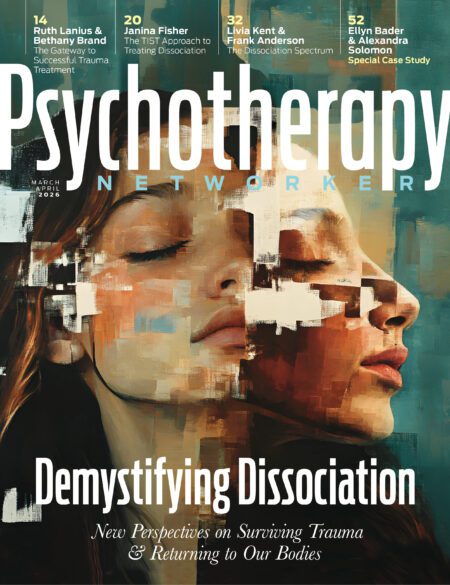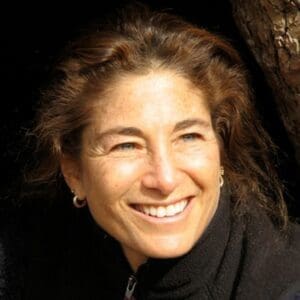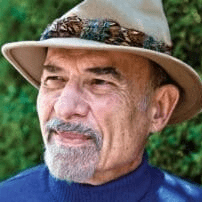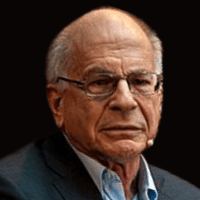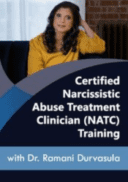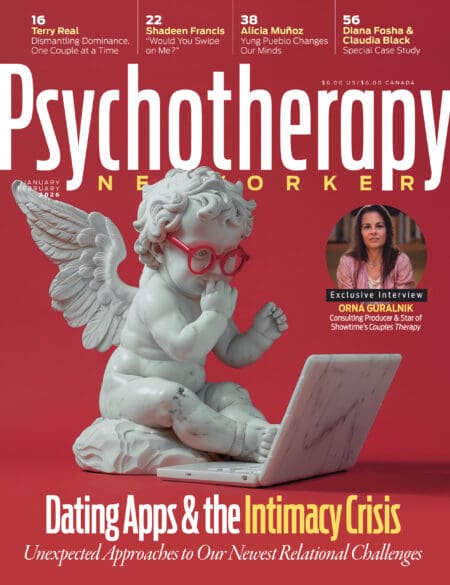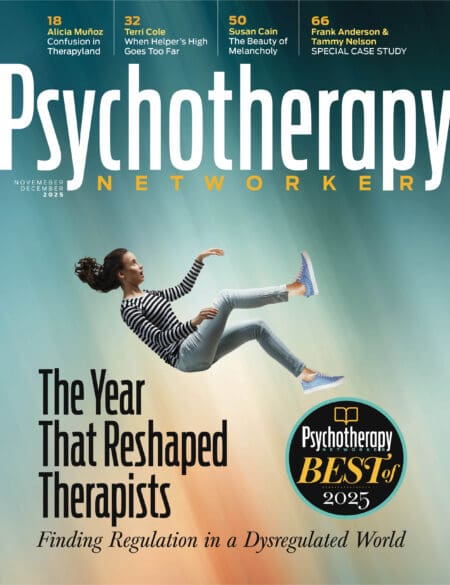Enjoy the audio preview version of this article—perfect for listening on the go.
How do we support our clients in moving beyond limiting stories? How do we help them experience life’s rich complexity in the midst of what can feel like a never-ending barrage of emotional burdens? How do we help them focus on hard-to-face issues and make meaningful changes?
Here, some of the wisest souls in the world of psychology and psychotherapy share their answers to the biggest, most slippery questions we face—as therapists and humans.
***
TARA BRACH: How Do We End Suffering?
Clinical psychologist and renowned Buddhist teacher sheds light on the shadow sides of therapy and the spiritual path.
IRVIN YALOM: How Do We Live Our Best Life?
Psychotherapy’s most famous storyteller believes we should focus less on symptoms and more on the great, timeless issues of freedom, meaning, and mortality.
EUGENE GENDLIN: How Do We Cultivate Wonder?
The developer of the mind-body approach Focusing highlights the value of tapping into the dynamic experience of the “felt sense.”
DANIEL KAHNEMAN: How Do We Change Bad Habits?
Nobel Prize-winning cognitive research psychologist explores the role of automatic responses in human thought, and just how instinctively unwise we can be.
***
A version of this article was originally published in March/April 2013.
Tara Brach
Tara Brach, PhD, is a clinical psychologist, an internationally known teacher of mindfulness meditation, and the founder of the Insight Meditation Community of Washington. She is author of bestselling Radical Acceptance and True Refuge, and leads accredited workshops for mental health professionals interested in integrating meditation into the practice of psychotherapy. Tara offers meditation retreats at centers in the United States and in Europe. Her podcasted talks and meditations are downloaded about a million times each month. In addition to her public teaching, Tara is active in bringing meditation into DC area schools, prisons and to underserved populations, and in activities that promote racial justice.
Irvin Yalom
Irvin D. Yalom, MD, is one of the world’s foremost psychiatrists, a visionary therapist and internationally bestselling author who has helped define the fields of group psychotherapy and existential therapy. His textbooks Theory and Practice of Group Psychotherapy and Existential Therapy remain standards for therapists in training worldwide, as does The Gift of Therapy: An Open Letter to a New Generation of Therapists and Their Patients. He’s also the author of the New York Times best-sellers Love’s Executioner, Momma and the Meaning of Life, Creatures of a Day, and Staring at the Sun: Overcoming the Terror of Death. A consummate storyteller, his teaching novels based in philosophical inquiry and psychological insight, including When Nietzsche Wept, The Schopenhauer Cure, Lying on the Couch, and The Spinoza Problem, have been best sellers in multiple countries. More at www.yalom.com
Eugene Gendlin
Eugene Gendlin is best known as a pioneer in the development of mind-body approaches to therapy. He’s the developer of Focusing, an experiential form of psychotherapy that encourages clients to get in touch with a “felt sense” of their bodies.
Daniel Kahneman
Daniel Kahneman, a cognitive research psychologist, received a 2002 Nobel Prize in Economic Sciences for his work demonstrating that human beings tend to make decisions on the basis of fast, spontaneous, intuitive—often wrong!—reactions and subjective experiences, rather than objective facts, slow deliberation, and hard logic. His book “Thinking Fast and Slow” explores the role of the automatic response in human thought, and just how instinctively unwise we can be.
